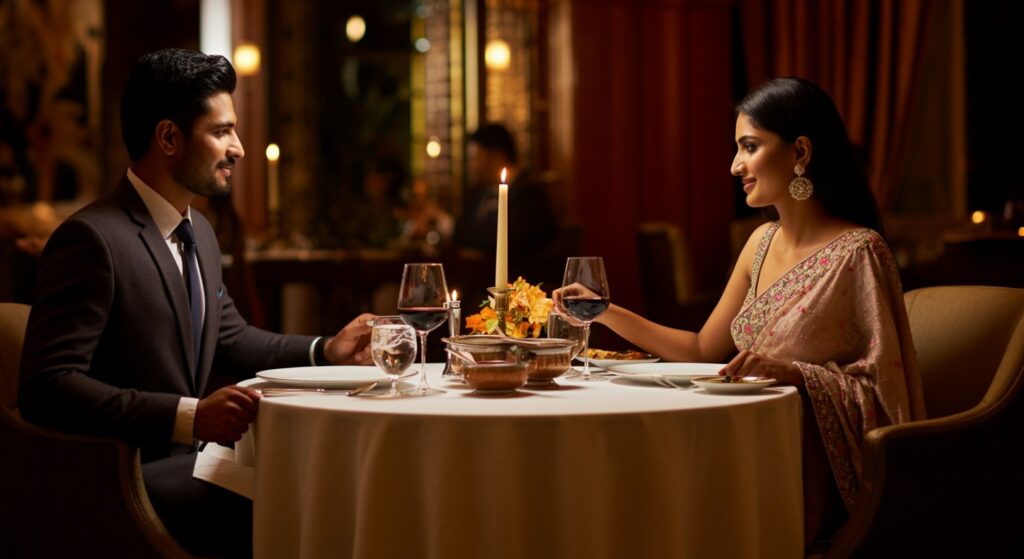How Your Personal Beliefs Can Destroy Your Relationship
– and What You Can Do

Love, trust, and respect are the key elements that make relationships work. However, differences in personal beliefs, shaped by upbringing, culture, and experiences, can either strengthen or weaken any relationship.
In India, where diverse traditions and beliefs prevail, partners often face challenges if they fail to respect each other’s perspectives. How personal beliefs can hurt relationships, with awareness and empathy, and help from online counselling, couples can overcome these challenges.
- Conflict of fundamental values
We all learn values about family, marriage, roles, money, and religion as we grow up. Disagreeing on these issues can create tension.
For instance:
- Religious beliefs: One partner may be very religious, and the other may not be.
- Gender roles: How people used to think about and how they think about household duties now.
- Parenting styles: Different ways of teaching, punishing, or raising kids based on their culture.
If these differences aren’t discussed openly, they can cause people to become angry or engage in heated arguments.
- Not being clear because of assumptions
Assumptions, not real disagreements, are what usually cause conflicts. One partner may think their beliefs are clear to the other, which can make them angry when the other person disagrees with them.
For example, A woman who grew up in a progressive home might expect her partner to help with housework, but he might think that it’s only a woman’s job.
Similarly, a partner who comes from a conservative background may not like that their spouse is free to hang out with people of the opposite sex.
These assumptions can create problems if couples don’t communicate clearly with each other.
People’s reactions are shaped by their past traumas and the way they were raised. For example, someone from a financially unstable home may prioritize savings, while their partner prefers spending. If you don’t show empathy, these kinds of differences can cause problems.
Why it’s important to respect your partner’s beliefs
- Acceptance instead of judgment
No two people have the same experiences. What seems crazy to one person might make sense to another. Instead of ignoring your partner’s beliefs, try to understand their origins.
If your partner wants to fast for religious reasons, don’t call it “unnecessary.” Instead, respect their choice.
- Talk to each other in a way that is open and non-judgmental
For a relationship to be healthy, both partners must be able to communicate with each other honestly and feel like they are being genuinely heard. Instead of saying, “Your beliefs don’t make sense,” say, “Help me understand why this is important to you,” or “Is there a middle ground that works for both of us?”
- Willingness to give in
Finding balance is what compromise means, not giving up your beliefs. For instance, if one partner likes living with the family and the other likes being alone, they might agree to live close by but not in the same house. Couples can celebrate each other’s holidays without forcing the other person to do so if their religious practices differ.
How different beliefs make misunderstandings worse
When partners have differing beliefs, they may become defensive, avoid discussing important matters, or harbour grudges over time.
In India, family and social pressures can make things worse, especially when it comes to interfaith marriages or other unusual choices.
How online counselling is helpful
Many couples struggle to resolve issues stemming from differing beliefs. Online counselling can be very helpful, especially now that therapy is becoming more accessible in India, because of the internet.
The benefits of online counselling for conflicts based on beliefs include:
- Neutral mediation: A therapist provides an impartial view, which helps you understand each other’s perspectives without blaming one another.
- Fear of exposure: Many people are reluctant to discuss their problems. Online therapy is private, comfortable, and open. You don’t have to visit a clinic; instead, engage with a couple’s counsellor from the comfort of your home.
- Learn tools for better communication: Counsellors teach you how to listen, understand, and solve problems.
- Being aware of other cultures: Indian online therapists are familiar with local customs, making their advice more relevant. Additionally, they are familiar with Western social norms, making them ideal for persons of Indian origin living abroad.
- Easy to use: People may be unable to visit in person due to busy schedules or social stigma. Online sessions eliminate these problems.
- Use in real life: Counselling helps couples from different religious or financial, or cultural backgrounds to understand and respect each other’s beliefs, explore ways to combine their practices, and establish boundaries with their families.
Building bridges, not barriers
Personal beliefs can make relationships more challenging, but they don’t have to break them. What matters most is how couples handle their differences—with respect, patience, and a willingness to grow together.
If you and your partner are experiencing difficulties due to differing beliefs, take action today: communicate with each other honestly and with respect, strive to truly understand one another, and don’t hesitate to seek professional help to strengthen your relationship.
Through online counselling, couples can learn to turn their differences into strengths. Love is about facing challenges together, not always agreeing on everything.
Get support before it’s too late!
Hope Trust is a leading psychological wellness platform based in India, offering support to individuals by enhancing their emotional well-being through therapy, self-care, and relationship guidance – since 2002. Check out our online counselling services today for expert help with relationship problems.
Click www.hopetrustindia.com for an online session with a professional.